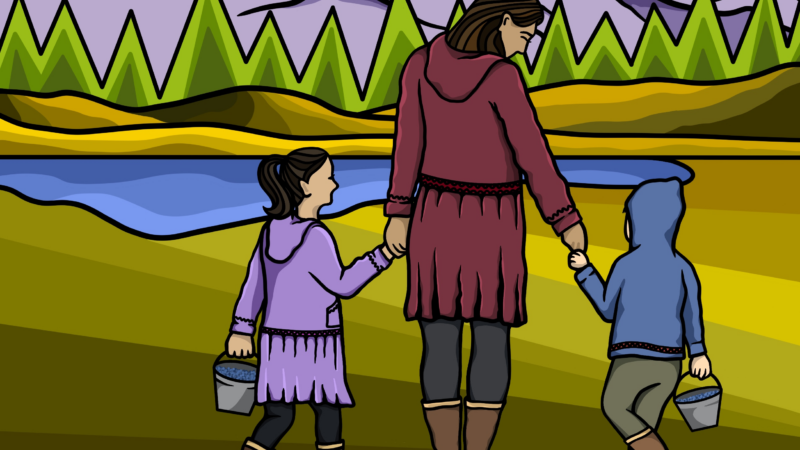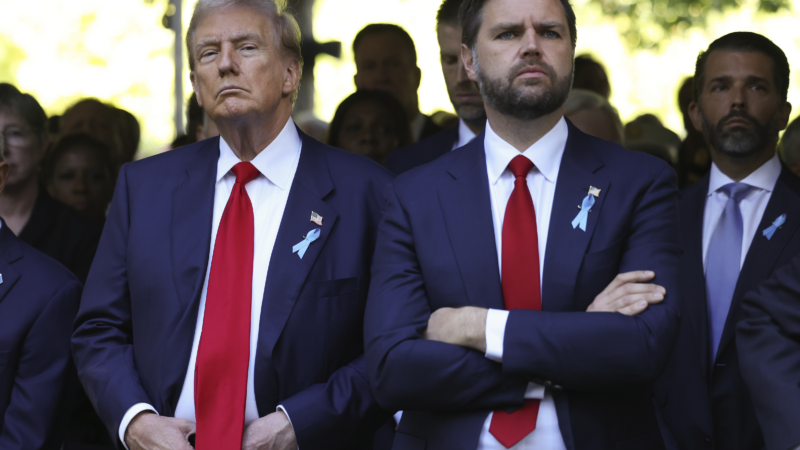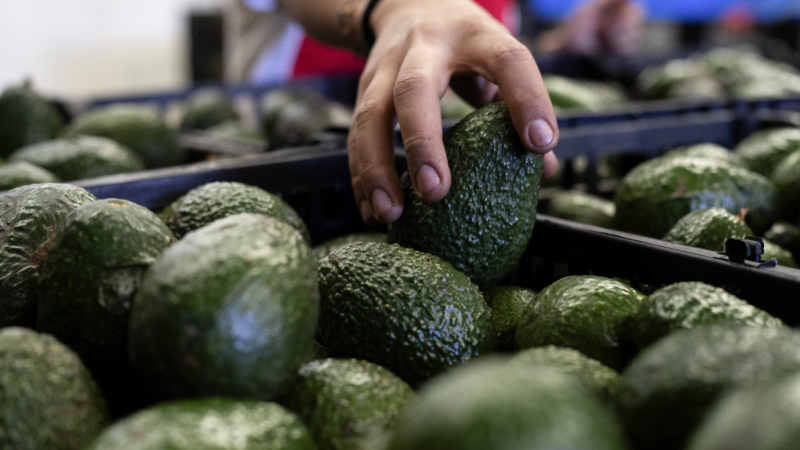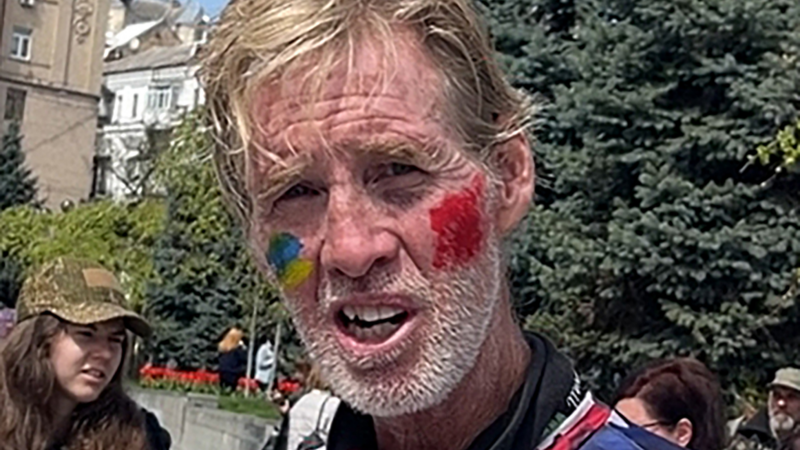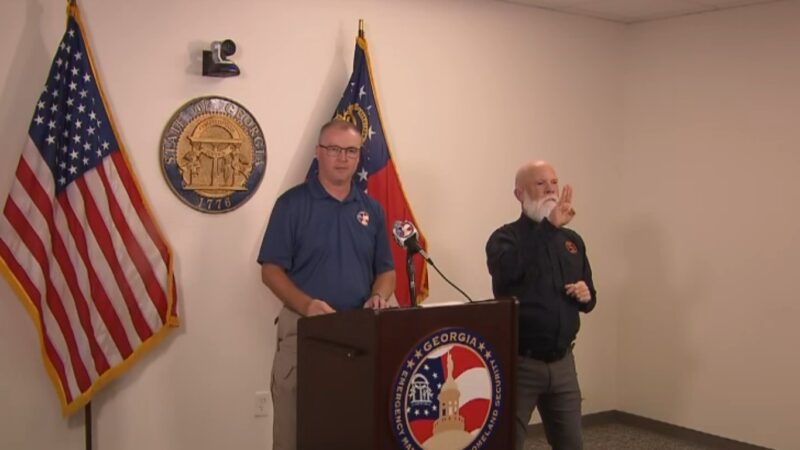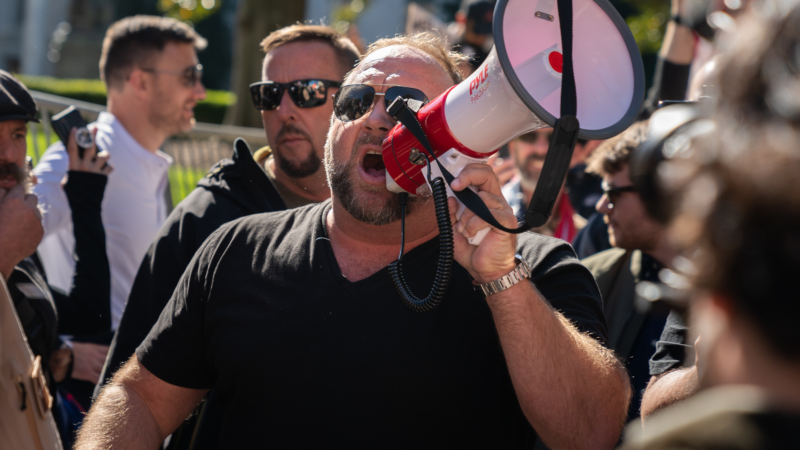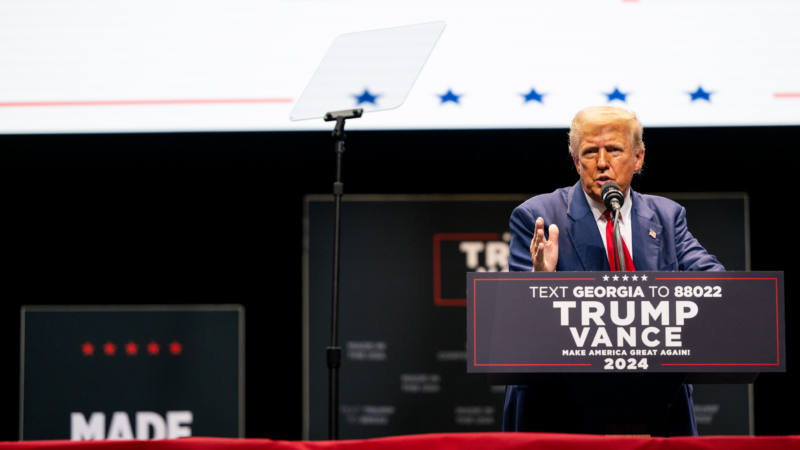These Alaska moms couldn’t find a Yup’ik children’s book. So they made one themselves
Nikki Corbett was desperate.
The mother and small business owner had searched online and in stores near her home in Alaska’s Kenai Peninsula, but she could not find any books to teach her young children the Yup’ik language.
Growing up, Corbett says, she was more fluent in the language – because she lived in the largely Yup’ik community of Bethel, Alaska.
“And so obviously being immersed in that, you understand more and can speak more,” Corbett says. “But being away from it – the community that I live in, it’s not a language that’s normally spoken.”
So Corbett – and her friend, Katie O’Connor, an illustrator and mother – decided to create their own Yup’ik alphabet coloring book.

In Alaska, there’s a market for primers like this.
More than 20% of the state’s population is Native. Of the estimated 21,000 Alaskans who identify as Yup’ik, nearly half speak the language.
In fact, Yup’ik is the most commonly spoken Native language in Alaska.
Corbett may have been immersed in Yup’ik culture when she was growing up in Bethel. But that’s not the case for every Alaska Native.
The subjugation of Native Americans and hostility toward Native language and culture has a lot to do with it, Corbett says.
“The younger generations, like my generation, in some of those areas, they don’t know the language because their parents were punished for speaking Yup’ik,” Corbett says. “And so I think that they were afraid to teach their children because they didn’t want their children to be punished for speaking our language.”
There are immersion schools in Alaska that have Yup’ik learning materials, but Corbett says it’s nearly impossible to find those books outside the classroom.
“If you go in the store and you see the kids section and you look at the educational material and you’ll see French or German or Spanish,” Corbett says. “Wherever those things are, we want to be able to create something similar in the Yup’ik language.”

Katie O’Connor is an Inupiaq artist based in Nome, Alaska.
Growing up, O’Connor says, she didn’t learn much about her own Inupiaq culture until after high school.
“There’s not a lot available out there. And then also, when you start digging into it, the literature, the books that are out there related to any Alaska Native culture, most of them are written by non-Native people,” O’Connor says. “Most of them are written by people who aren’t from Alaska, and some are written by people who’ve never even been to our region.”
Corbett and O’Connor, who had met at the Iditarod, teamed up and applied for a fellowship to make their book.
The result is 27 pages, each featuring a letter of the Yup’ik alphabet and illustrations celebrating Yup’ik culture and heritage.
“The letters of the Yup’ik language, they relate to something in our culture, like you won’t see a coloring book that has fry bread in it,” Corbett says. “And so it’s images from a part of who we are as Alaska Natives.”
Corbett says they have between 700 and 1,000 bulk order requests for the coloring book — including an Alaska school district.
“Our culture is so strong and our people are resilient and just to be able to, you know, it’s just a coloring book. But for us, it’s just so much more than a coloring book,” Corbett says.
Corbett and O’Connor hope to release their next coloring book in the Inupiaq language.
Majd Al-Waheidi edited this article.
Transcript:
MICHEL MARTIN, HOST:
Yupik is the most spoken native language in Alaska.
NIKKI CORBETT: (Speaking Yupik).
LEILA FADEL, HOST:
That’s Nikki Corbett introducing herself in Yupik. Corbett is a mom and small business owner in Alaska’s Kenai Peninsula. She searched in stores online but couldn’t find any books to teach her kids Yupik, so she made her own.
MARTIN: And there seems to be a market for it. Of the about 21,000 Alaskans who identify as Yupik, nearly half speak the language.
FADEL: Now, growing up, Corbett herself was immersed in Yupik culture. But that’s not the case for every Alaska Native. The subjugation of Native Americans and hostility toward Native language and culture has a lot to do with it.
CORBETT: The younger generations, like my generation, you know, in some of those areas, they don’t know the language because their parents were punished for speaking Yupik.
MARTIN: Now there are immersion schools in Alaska that have materials in Yupik. But Corbett says you can’t find those kinds of books beyond those classrooms.
CORBETT: You know, if you go in the store and you see the kids’ section and you look at the educational material, you’ll see French or German or Spanish. You know, wherever those things are, we want to be able to create something similar.
FADEL: So Corbett tapped her friend, an illustrator, to help make a Yupik alphabet coloring book.
KATIE O’CONNOR: My name is Katie O’Connor. I’m an Inupiaq artist.
MARTIN: Growing up in Nome, Alaska, O’Connor didn’t learn much about her Inupiaq culture until after high school.
O’CONNOR: There’s not a lot available out there. And then also, when you start digging into it, the literature, the books that are out there related to any Alaska Native culture, most of them are written by non-Native people. Most of them are written by people who aren’t from Alaska, and some are written by people who’ve never even been to our region.
FADEL: O’Connor and Corbett won a fellowship to make their book. It’s 27 pages, each featuring a letter of the Yupik alphabet and illustrations celebrating Yupik culture and heritage. Here’s Corbett again.
CORBETT: The letters of the Yupik language, they relate to something in our culture. Like, you won’t see a coloring book that has fry bread in it. And so we’ve got a double letter in our language. It’s a double S – (speaking Yupik), which is fry bread. And so it’s images from a part of who we are as Alaska Natives.
MARTIN: Corbett says they have about a thousand bulk order requests for the coloring book, including an Alaska school district.
CORBETT: Our culture is so strong and our people are resilient. You know, it’s just a coloring book, but for us, it’s just so much more.
FADEL: Corbett and O’Connor hope to release their next coloring book in the Inupiaq language.
(SOUNDBITE OF ALLORA MIS’ “LEWISBURG”)
Haitian group seeks charges against Trump and Vance over false Springfield claims
Charges brought by private citizens are rare, but not unheard of, in Ohio. State law requires a hearing to take place before the affidavit can move forward.
U.S. to hand over pest inspections of Mexican avocados to Mexico
Threats and violence against inspectors have caused the U.S. to suspend inspections in the past. California growers question Mexico's inspectors would be better equipped to withstand the pressure.
Ryan Routh is charged with attempted assassination of former President Donald Trump
In addition to attempting to assassinate a presidential candidate, Routh was charged with possessing a firearm in furtherance of a violent crime and assaulting a federal officer.
GPB evening headlines for September 24, 2024
Tropical Storm Helene is expected to make landfall as a major hurricane in Florida and bring damaging rain and winds to Georgia. Former President Donald Trump held a rally in Savannah today. It was his first campaign event in Georgia since early August. The State Election Board yesterday approved an investigation into why challenges to voter rolls were denied in eight counties.
Going once … going twice: Alex Jones’ cameras, mics, Infowars show, vitamin site
A federal bankruptcy judge has ruled that a plan to sell off the assets of Jones' media company, Free Speech Systems, can move ahead. Net proceeds will go to the Sandy Hook families who Jones defamed.
Trump vows to ‘steal’ jobs from other countries in winding speech on economic plans
Former President Donald Trump called for a "manufacturing renaissance" in a Savannah, Ga. speech on Tuesday, proposing measures some economists say would raise prices on Americans.
